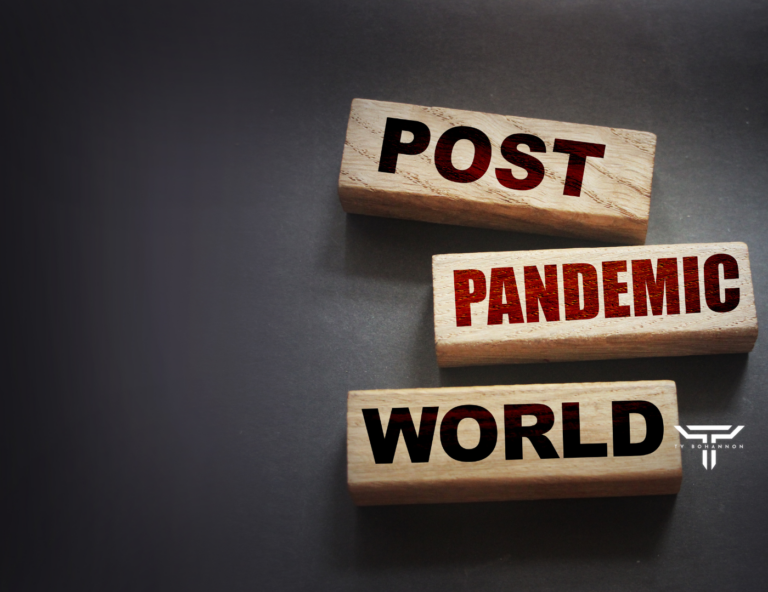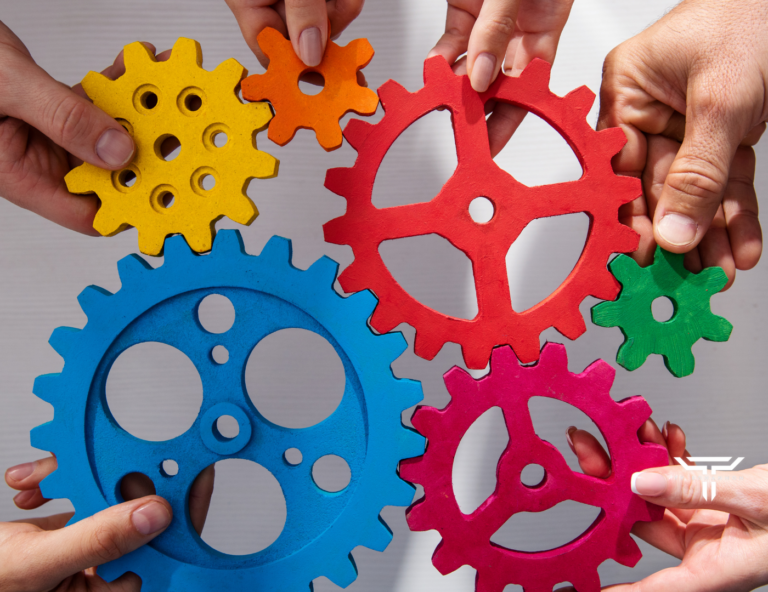Beyond the Caffeine: Challenging Traditional Notions of Coffee’s Role in Business
Introduction: More than a Morning Ritual
Let’s face it, coffee is often seen as the fuel that powers the business world. From quick meetings at your local café to the countless cups gulped down in boardrooms, it’s almost as if caffeine and commerce are locked in an unbreakable bond. But what if we told you that this relationship is ready for a wake-up call? The power of coffee in the business sphere extends far beyond keeping you alert during PowerPoint presentations. It serves as a social catalyst, sparks creativity, and even influences your brand’s perception. So go ahead and pour yourself a cup, because we’re about to brew some serious insights into the deeper role of coffee in business.

The Java Paradigm Shift
Waking Up to New Possibilities
Coffee as a productivity booster is yesterday’s news. Welcome to a world where your cup of joe is more than just a wake-up call—it’s an invitation to explore fresh opportunities in your business landscape. Ever noticed how some of the best conversations happen over a coffee break? Or how a latte can turn a tense meeting into a relaxed, brainstorming session? The point is, your coffee can do more than keep your eyes open. It can open doors and minds, transforming how you interact in your business world.
Brewed Transformation
Who knew your daily brew could be an elixir for holistic well-being? Forget about those jittery, caffeine-induced ‘highs.’ Today, coffee shops are morphing into wellness hubs that offer herbal infusions, turmeric lattes, and even guided mindfulness sessions. The implications for business? Imagine a world where coffee breaks evolve into wellness breaks. A space where employees can reset, recharge, and return to work as better versions of themselves. It’s not just about energy anymore—it’s about enriching your whole self.
The Espresso Experience
There’s something captivating about the experience of sipping a well-crafted espresso. The rich aroma, the intense flavor—it’s a ritual in itself. Translate that to a business setting, and you’ve got yourself a strategy for meaningful connections. Forget stiff handshakes and bland small talk. Engaging your clients or colleagues over an espresso can shift the dynamics of your interactions, turning them into memorable experiences that leave a lasting impression. So the next time you’re aiming for more than just a transactional meeting, remember the espresso experience—it’s revitalizing business, one cup at a time.

Beyond the Cup: Coffee as a Business Catalyst
Strategic Sips and Conversations
You may think you’re just sipping a cup of coffee, but what if I told you that you’re also engaging in a form of art—a latte art of negotiation and networking, to be precise. Each coffee meeting, whether planned or impromptu, has the potential to be a strategic interaction. Just like how a barista crafts each cup with expertise and precision, business leaders use coffee rendezvous to map out deals, build relationships, and set long-term strategies. So the next time you take that sip, consider the endless possibilities that can be brewed in that very moment.
Coffee and Deals: A Latte More Than You Think
Coffee shops are more than cozy corners where you catch up on emails. They are the unsung war rooms of business. With their welcoming ambience and neutral territory, coffee shops offer a conducive space for making tough calls, closing deals, and even averting crises. Just like a boardroom, only less intimidating and more agile. Gone are the days when crucial business interactions were confined to four walls. Now they happen around tables with cups of artisan coffee.
Coffee and Company Culture
What’s the secret sauce to a thriving company culture? Believe it or not, coffee plays a starring role. Whether it’s an espresso machine in the break room or regular “coffee and learn” sessions, coffee cultivates a sense of community. It breaks down barriers, fostering casual conversations that often lead to creative breakthroughs. A cup of coffee can be an informal recognition of a job well done or an invitation to share ideas. Essentially, it becomes a tool for promoting unity and creativity within the organization, one cup at a time.

The Coffee Economics: More than Just Beans
The ROI of Specialty Coffee
Let’s get real; high-quality coffee isn’t just a palate pleaser—it’s an investment. An investment that pays dividends in the form of increased productivity, elevated mood, and enhanced client relationships. When you opt for quality over quantity, you’re making a conscious choice that reverberates through your business ecosystem. Specialty coffee isn’t a cost; it’s an investment in employee satisfaction and stakeholder engagement. So the next time you think about cutting corners on coffee, remember that the ROI could far exceed your expectations.
The Cost of a Coffee-Forward Strategy
Before you jump headfirst into the coffee pot, let’s consider the balance sheet. Sure, specialty coffee might seem like an extravagant expense at first. But weigh that against the intangibles: heightened morale, improved focus, and even a boost in team cohesion. If the ledger still tilts in favor of specialty coffee, congratulations—you’ve just identified a worthwhile investment.
The Frappuccino Effect
We’ve all been there—standing in a long line at a coffee chain, debating between a hot latte or an iced frappuccino. But have you ever stopped to think about the business dynamics that this very scenario influences? Coffee chains like Starbucks haven’t just popularized certain drinks; they’ve created consumer behaviors that spill over into other businesses. The idea of customizability, convenience, and customer loyalty built around a single beverage has far-reaching implications for how businesses should engage with their consumers. We call this the “Frappuccino Effect,” and it’s stirring up the business world in ways we’re just beginning to understand.
From Bean to Business: Sustainability and Ethics
Eco-Friendly Beans: Good for Business and Planet
Sustainability isn’t just a trendy catchphrase; it’s a business imperative for the 21st century. When your coffee comes from eco-friendly sources, you’re not just ticking a corporate responsibility box. You’re making a statement about the values that define your business—values that resonate with an increasingly conscious consumer base. Making the switch to sustainable coffee sources is a step towards aligning your brand with ethical practices and environmental stewardship, building both brand equity and long-term profitability.
The Direct-Trade Business Model
Let’s cut out the middleman and get down to business. Direct-trade coffee isn’t just a niche market; it’s a transformative approach that is redefining global coffee trade dynamics. By building relationships directly with coffee farmers, companies not only get higher quality beans but also contribute to more equitable trade practices. This direct line from farm to cup empowers local communities and ensures a fair share for everyone involved, creating a win-win scenario for businesses and suppliers alike.
The Reusable Cup Revolution
Think your packaging doesn’t speak volumes? Think again. The reusable cup revolution isn’t just a passing fad; it’s a brand statement that your business is committed to sustainability. And here’s the kicker—consumers are starting to expect it. By incorporating reusable or recyclable cups into your operations, you’re not just cutting down on waste. You’re aligning your brand with consumer values, which can translate into increased loyalty and, yes, even higher sales.

Conclusion: An Elixir for Modern Business Challenges
Stirring Up the Future
Let’s spill the beans: coffee is doing more than just fueling late-night work sessions or powering morning meetings. It’s reshaping the way we think about business, from networking to corporate culture. Forget the old playbook; coffee’s evolving role is as dynamic as a freshly brewed cup. As we look to the future, anticipate seeing coffee incorporated in innovative strategies, from sustainability initiatives to employee wellness programs, offering new ways to blend business success with societal impact.
The Next Big Sip
So what’s brewing on the horizon? Expect to see businesses take coffee culture to the next level. We’re talking about more than just nitro cold brews or pumpkin spice lattes; it’s about creating immersive coffee experiences that foster innovation, collaboration, and community. This shift toward experiential coffee spaces can become a cornerstone for creative business strategies, redefining how we engage with colleagues, clients, and even competitors.
The Bottom Line
Let’s talk numbers. Investing in coffee-related initiatives isn’t just a feel-good move; it’s a strategic play with tangible returns. From bolstering employee satisfaction to enticing clients with gourmet coffee experiences, this aromatic brew serves up multiple avenues for boosting ROI and stakeholder value. When coffee becomes more than just a cup but a statement of your brand’s values and vision, you’re not just filling a mug—you’re filling your coffers.
FAQ: Navigating the Intersection of Coffee and Business
Q1: Why is coffee relevant to modern business strategies?
Coffee goes beyond being a mere beverage; it has cultural, social, and economic implications that are deeply embedded in business operations. From networking spaces to a focus on sustainability, coffee plays a role in shaping various aspects of business strategy.
Q2: How can focusing on quality coffee impact ROI?
Investing in quality coffee not only enhances employee satisfaction but also creates a positive brand image. It’s a strategic move that can lead to higher engagement, increased productivity, and even more business opportunities, thereby positively affecting ROI.
Q3: What does “The Frappuccino Effect” mean?
“The Frappuccino Effect” refers to how large coffee chains like Starbucks influence consumer behavior and set trends. Their strategies have ripple effects in the business world, from creating consumer expectations to defining what ‘quality’ means in a fast-paced environment.
Q4: Is the Direct-Trade Business Model viable for all businesses?
While direct trade is an ethical way to source coffee, its implementation may not be practical for all businesses. It’s essential to weigh the costs and benefits, including potential increases in product quality and brand reputation, against the resources needed to maintain these direct relationships.
Q5: How is coffee culture changing business interactions?
Coffee shops are increasingly serving as informal meeting spaces, nurturing networking, deal-making, and even co-working. The shift towards experience-based coffee consumption is altering how business interactions are conducted.
Q6: What are the risks of incorporating coffee-based strategies?
While the benefits are compelling, risks include potential higher costs, the need for staff training, and ensuring that sustainability and quality standards are met. It’s essential to have a well-thought-out strategy to mitigate these risks.
Q7: How can coffee contribute to sustainability efforts?
Sustainability in the coffee industry can be a blueprint for broader business practices. By focusing on eco-friendly beans, direct-trade models, and sustainable packaging, companies can make a statement about their brand’s commitment to responsible business.






